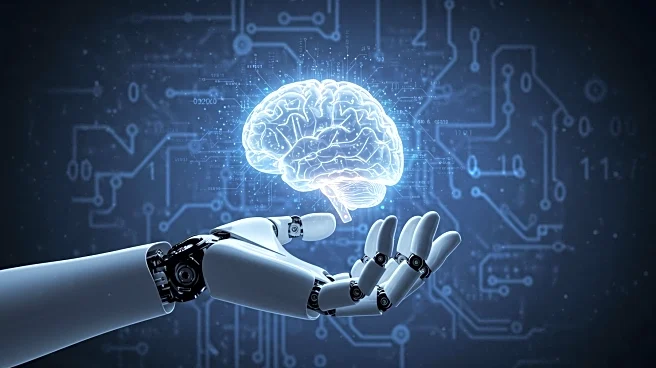What's Happening?
The Trump administration has unveiled a comprehensive strategy to reform the American workforce system, focusing on artificial intelligence (AI) skills development and rapid retraining. The plan, released by the Departments of Labor, Commerce, and Education, criticizes the traditional 'college-for-all' model, suggesting it has not met the needs of employers or workers. The strategy emphasizes AI literacy and skills development, proposing pilot programs to drive rapid reskilling and foster AI-era innovations. The administration aims to create coordinated changes across K-12 education, postsecondary education, and workforce development. It plans to expand Workforce Innovation and Opportunity Act (WIOA) waivers to consolidate workforce training grants and invest in outcome-based pilot programs. The strategy also includes using DARPA-style experimentation models to test new ideas and scale proven strategies, while prioritizing AI literacy.
Why It's Important?
This initiative is significant as it addresses the evolving demands of the labor market in the AI era. By prioritizing AI literacy and skills development, the plan aims to prepare the workforce for high-wage careers and enhanced productivity. The strategy could potentially reduce the skills gap and align workforce programs with employer needs. It also seeks to streamline workforce systems, making them more agile and innovative. The focus on AI tools and virtual reality for workforce coaching and skill matching could enhance career mobility and training efficiency. The plan's emphasis on data modernization and unified eligibility checks could reduce administrative burdens and improve access to training and career opportunities.
What's Next?
The administration plans to implement coordinated changes across educational and workforce development systems. It will expand WIOA waivers and authorities to consolidate training grants and redirect funds toward innovation. Federal agencies are considering releasing a national framework on AI literacy to align training with industry needs. Funding will be provided for regional AI learning networks through grants to employer-led partnerships with colleges and training providers. The Departments of Labor and Commerce will pilot rapid retraining models for workers displaced by AI, testing scalable approaches validated by employers. Data modernization projects will support these efforts by unifying eligibility checks and online platforms.
Beyond the Headlines
The strategy's focus on AI literacy and skills development highlights the ethical and cultural dimensions of workforce transformation. It underscores the need for continuous innovation to navigate AI's opportunities and challenges. The plan's emphasis on modular utilities and data-sharing agreements reflects a shift towards more integrated and efficient workforce systems. By promoting career mobility and rapid skill matching, the strategy aims to ensure workers can share in the prosperity created by AI. The initiative also raises questions about the future of traditional education models and the role of apprenticeships in workforce development.










